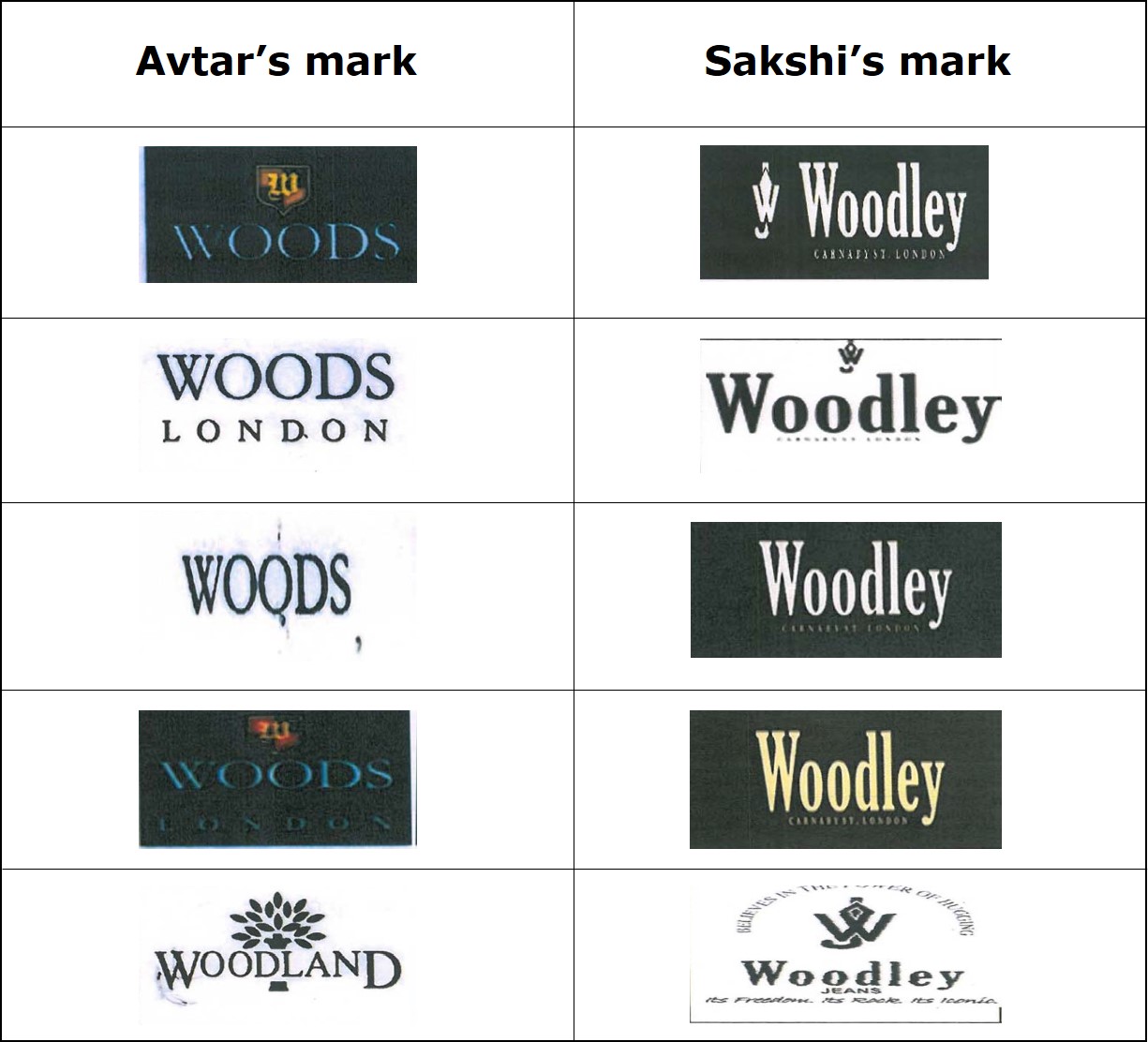Delhi High Court holds WOODS and WOODLEY to be similar
Is there copying of the dominant portion of the trademark? This short point has come up for consideration in the instant suit between two entities dealing in apparel.
The Plaintiffs, Avtar Singh and Ors (Avtar), filed the suit before the Delhi High court, alleging trademark infringement and passing off against the Defendants, Sakshi Srivastava (Sakshi) and another.
Avtar seeks to restrain Sakshi from using the mark WOODLEY or any other mark identical or deceptively similar to the former’s WOODS and WOODLAND trademarks. The High Court was pleased to grant an ex-parte injunction in favour of Avtar. Sakshi has applied to set aside the injunction order. The post outlines the contentions of the parties and the ruling of the court.
Avtar in the suit states:
- They are the registered proprietor of the trademarks WOODS, WOODLAND, and WOODLAND (stylized) in classes 3 and 25, and the earliest registration date back to the year 1994. The WOODS and WOODS (stylized) applications are pending registration in Class 18.
- They offer Jackets, T-Shirts, Sweatshirts, and Casual shirts under the brand names WOODS, WOODLAND.
- During the last 28 years, they have grown steadily to become an international brand.
- In September 2017, Avtar became aware of the trademark application filed by Sakshi for the mark WOODLEY (stylized) in classes 18, 25, and 35, which was duly opposed, and the proceedings are ongoing before the Trademark Registry.
- In July 2020, Avtar noted a new apparel store named WOODLEY.
- WOODLEY is visually and phonetically similar to Avtar’s WOODS and WOODLAND marks. Further, malafide intention is evident because Sakshi has copied the letter ‘W’ device and used identical color combinations.
Sakshi, in the written statement, contends:
- There is an inordinate delay in filing the suit.
- They have honestly adopted the mark and have been using it uninterruptedly since 2014.
- The marks ‘WOODLAND’ and ‘WOODS’ are not similar to ‘WOODLEY.’
- Avtar cannot claim exclusivity in the mark ‘WOOD’ by dissecting ‘s’ from Woods and ‘land’ from Woodland.
- The elite class purchases Avtar’s products, and Sakshi’s products are targeted at the middle and lower class. Moreover, they deal in formal wear. Target customers of two entities differ and there is no chance of confusion.
Court’s findings
- On a visual comparison of the rival marks, prima facie, it appears that Sakshi has copied the dominant portion of Avtar’s marks.

- Sakshi relied upon Section 17 to contend that where a trademark consists of several matters, its registration confers exclusive right to use the mark as a whole and does not confer a right on the portion of the mark. The Court held that this contention has no merits as the rule of ‘anti dissection’ does not impose a complete embargo upon consideration of the constituent elements of a composite mark. It is a settled law that while a trademark is supposed to be looked at as a whole, the consideration of a trademark entirely does not condone infringement. Where the essential feature of the trademark is appropriated, it is therefore not improper to identify elements or parts of the marks that are more or less important in cases of composite marks.
In the instant case, what needs to be considered is whether the trademark WOODLEY is similar to WOODLAND or WOODS. WOOD is a dominant feature of Avtar’s mark, though it is not the registered trademark. From a comparison, WOODLEY is structurally and phonetically similar to WOODLANDS or WOODS.
- Sakshi contends that they deal in formal wear. Further, Avtar’s products are high-end products meant for the elite class, and thus, there will be no confusion. The Court held that this argument was misconceived. In the instant case, both the parties claim to be dealing in men’s formal wear. Documents on record show that Avtar has been dealing in formal wear since 2013. The only issue is that the target customers differ as Sakshi’s products are meant for two-tier and three tier cities, whereas, Avtar’s products are meant for the affluent class. Admittedly, both parties are in the field of men’s readymade garments. Sakshi’s plea that the customers would not be confused because the rival products deal in different segments is misplaced and cannot be accepted as a defense to the stated infringement. There is no reason to believe that the customers will not get confused due to price differences.
In light of the above, the Court confirmed the injunction in favour of Avtar till disposal of the suit holding that Avtar has made out primafacie case and balance of convenience is in their favour.



